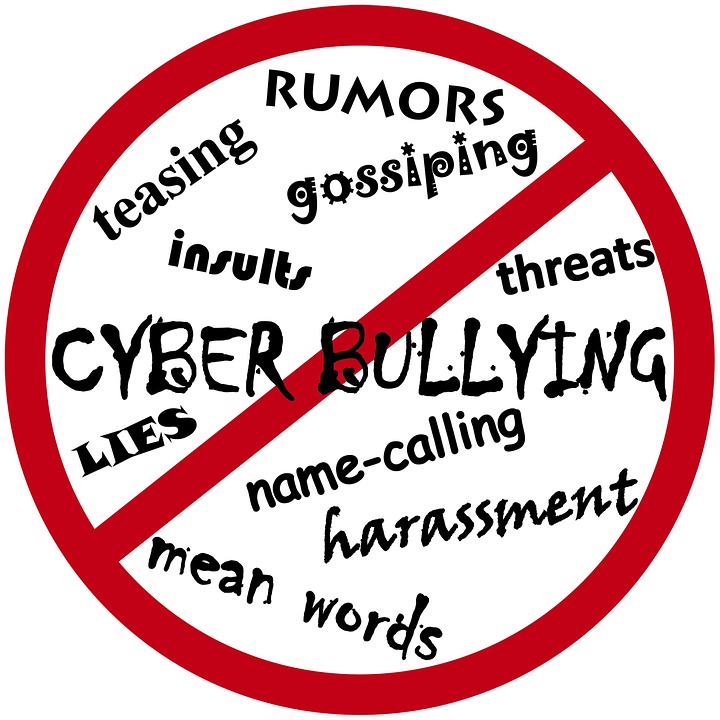I saw this amazing video yesterday on my niece’s facebook page. US Anchor Jennifer Livingston turned a hate filled message about her weight into something truly surprising. Even though this video has been around a few years now, the message holds true and is important. I just loved the way she handled this.
Livingston spoke out against cyber bullying when responding publicly to a local man’s e-mail that called her “fat” and a bad role model for American youth, “girls in particular.” In a classy move that could have turned very sour, Jennifer Livingston calmly proceeded to tell the man in a live broadcast of the morning news that she is aware of her “physical condition” as he so blatantly called it, that he did not know her as a person, and that she is “much more than a number on the scale.”
Jennifer’s bravery got me thinking about cyber bullying and how it’s reach is even more insidious as we spend more and more of our lives ‘plugged in’.
Bullying has been around since forever, but the bully’s reach or targets was once limited.
Perhaps you were the kid at school who was pushed around. Grown-ups in your life probably told you to just ‘deal with it’ or ‘don’t be a pushover’, or even ‘if you don’t beat them, you’ll get a beating when you come home’ – remember that one? However, you did have one thing going for you… the bully wasn’t in your home, too.
Now that a large part of our lives are spent on social media, that has changed. In today’s tech-savvy society we carry our lives around with us, allowing bullies to reach their targets wherever they go. Cyber bullying can bring kids, teens, and even grown ups to breaking point. We must face the realisation that we are living in a society that allows a person with a keypad to use it as a lethal weapon.
Cyber bullying and digital shaming never rest.
The Internet doesn’t take time off for holidays, vacations or summer breaks. In a PEW Research Center Study in 2015 on Teens, Social Media and Technology , ninety-two percent of teens go online daily, with twenty-four percent saying that they are online constantly. They are spending more of their time in cyberspace than they are in the real world.
And speaking of the “real” world… Just last week, Canada partook in its first ever Twitter harassment trial, which concluded with the decision that harassing women online is not a crime.
Yes, you read that right.
In the case, proclaimed feminists Steph Guthrie and Heather Reilly accused Gregory Alan Elliot of criminally harassing them via Twitter. However, Elliot was found not guilty by Judge Brent Knazan. These women did everything in their power to steer clear of Elliot’s stalker-like harassment, from blocking him on Twitter all the way to filing a formal complaint with police after he seemed to be getting out of control. This court ruling is sending an enticingly dangerous message to Internet users, especially men, stating that their stalking and harassment online will be shrugged at by authorities. It makes it completely OK and normalized. The verdict of this harassment trial not only accepts violent, irrational behavior towards women online, but creates a toxic atmosphere for cybe rbullying to fester.
We must must MUST stand up to this horrible crime.
How to deal with a Cyber Bully
Do Not Respond
The first step is to stop responding to the cyber bully. Do not reply to emails, posts, IM’s or text messages. This is what the bully wants. They want you to engage with them. They want to  manipulate you into responding. If you respond in any way that is emotional or lets them know that they are getting to you and are able to make you upset, it only encourages the cyber bully.
manipulate you into responding. If you respond in any way that is emotional or lets them know that they are getting to you and are able to make you upset, it only encourages the cyber bully.
Don’t Delete Information
While you should not respond to the cyber bully online (or offline) you should also not delete their messages. That’s right, do NOT delete their messages. Also try to save as much information you can about chats, IM’s, text messages, blog posts, websites, etc.
This will show just how often the cyber bullying takes place, at what times and from where. Every computer, server and device connected over the (TCP/IP) network has a unique IP (Internet Protocol) address. Police along with the cyber bully’s ISP (Internet Service Provider) can use this information to trace the bully right to their house.
Report the bullying to your Internet Provider, Police and Schools
You need to let appropriate authorities know about the cyber bullying or they cannot take corrective action. Cyber bullying is not something you want to ignore. It is your responsibility to report this behavior so the perpetrators can be dealt with.
Cyber bullying can be every bit as dangerous as bullying; more so in some cases. Awareness is the key. Have you, or anyone you know, been the victim of a cyberbully? How did you deal with it? How did it affect you? Would love to hear your experience, strength, and hope in the comments below.





























